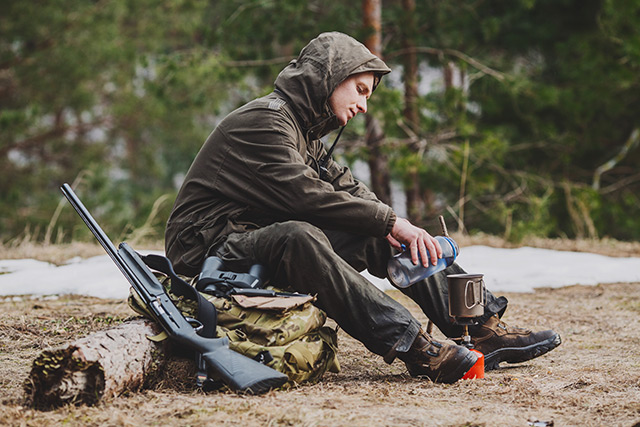How to survive a tornado if you don’t have a shelter or basement
05/22/2018 / By Jessica Dolores

Every year, tornadoes claim the lives of 60 people, on average, who die from the airborne debris they bring. Besides causing massive grief, this natural disaster also destroys homes and properties, and disrupts normal activities in businesses and schools.
Some can seek shelter in their home basement when a tornado threatens life and property. But what about those who don’t have a basement? How do they survive this disaster?
Here are some survival tips: (h/t to TheSurvivalMom.com.)
- Go to a public building – Public areas like churches, libraries, malls, large stores, and government buildings have storm shelters or “safe areas” where their employees and customers can seek shelter during natural disasters. Find out where these are located before hand so you know where to go, and wait out the storm there. Speak to the manager early on and ask him about their policy in letting the public use their place as shelter. Leave your home way before the tornado arrives. Tornadoes can occur in the middle of the night when public buildings are already closed for the day. If you live in a tornado area, you’ve probably driven by many public buildings that act as shelters. Write down the names of these buildings and their addresses and include them in your emergency kit.
- Find a community storm shelter – Have a list of community storm shelters in your area and keep it handy along with your emergency kit. Find out the easiest, fastest way to get there. Most of these shelters don’t allow pets, large bags, or bins. Many ask that you bring your own water bottles and snacks. Shelters frequently fill up quickly, so leave your area early. They’re usually cramped, sweaty, and teeming with frightened and/or bored children. So be prepared for these inconveniences in exchange for your safety.
- Make the best of your resources –Tornadoes may just strike when you least expect them, and you don’t have the time nor the resource to leave your home. Keep calm and think about how you and your family can stay safe. Stay on the ground floor of your home, as close as possible to the center of the structure where you have many walls between you and the outdoors. Stay away from the exterior wall, doors, and windows which open to the street or the outdoor area. Limit your movements to the smallest space in your home, like under stair storage, and closets. If your apartment is not on the first floor, ask the manager what their tornado warning policies are. Stay away from exterior doors and windows.
- Prepare to enter your safe place – Start doing so when your place is under a tornado watch. Make sure everyone has his or her shoes on. Closed-toe shoes that lace up protect your feet and stay put if you have to run. Wear your motorcycle, bicycle and/or football helmet to keep your head safe from flying debris. Keep your emergency bag handy so you can grab it when you have to evacuate at once. Prepare bottled water, extra clothes, protein bars, a first aid kit, flashlights, battery or crank powered weather radio, a blanket for your body, kitchen utensils and a hatchet to remove debris. If you have a small pet, put it in a crate with a towel or blanket to protect it. Make sure your pet has its name and address on its collar for easy identification. Keep your pet’s leash handy in case you have to flee at once. Make sure larger pets are wearing their collars with leashes attached to them while waiting out the storm. When you hear the words “Tornado Emergency” in your neighborhood, that means a tornado has reached the ground. Brace yourself in a safe place.
- Seek shelter in the house of a relative or friend who has a basement in his home – Make sure you get his consent first. Don’t just come knocking at his door with your family, your pet, and belongings. Ask if he has space for you and your loved ones. Don’t be a burden to your host. Bring enough food and water to last you and your family for at least three days. Bring your emergency kit and important papers in case your home is destroyed and you can’t go back there for some time. Take a few rechargeable batteries like those that use a USB charger with you.
Sponsored solution from the Health Ranger Store: Lab-verified Nascent Iodine solution is a dietary supplement that provides your body with supplemental iodine to help protect your thyroid during radiation exposure. Nuclear accidents such as Fukushima (or nuclear war) can expose your body to radioactive iodine-131, a dangerous radioisotope. Pre-loading your system with stable iodine occupies the iodine receptor sites on your organs, causing your body to naturally expel radioactive iodine you may have been exposed to through air, food, water or milk products. This defensive strategy is recommended by nearly all health authorities, worldwide, including the Nuclear Regulatory Commission. Discover more at this link.
Tornadoes are scary, and fear is a natural reaction. But with the right attitude and a lot of preparation, you can literally weather the storm.
Find more articles on how you can prepare for any and every eventuality at Preparedness.news.
Sources include:
Tagged Under: bug out bag, emergencies, emergency kit, Emergency plan, emergency preparedness, emergency shelter, Gear, natural disasters, prepping, survival, tornado, tornado preparedness




















